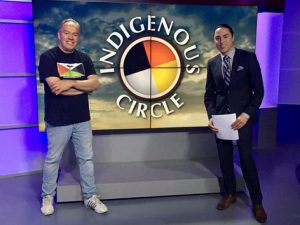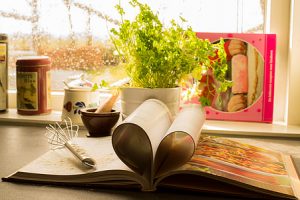I just wanted to show with this blog, a change for the better through education, culture and technology, and having mentors like Nelson Bird and Cree Agecoutay, who also had mentors like their mom, grandmother and teachers, all help pave the way for the next generations to come.
This site, celebrates Creeson Agecoutay, a news anchor on CTV, who was raised by a single mother on Cowessess First Nations. Creeson Agecoutay has attained his goal of working in journalism at CTV. This particular individual exemplifies how positive role models and providing a strong educational foundation can lead you to any goal and path you want to take. “Education was a big thing in our home. That was the rule. If you’re in Mom or Grandma’s house, you have to go to school every day. So after we got home from school, our time together would be at the dinner table while CTV News was on.” This quote by Creeson ties in culture, family, generations, education, tradition, and technology and reminded me so much of how my mom spoke to her students when she was teaching.

Nelson Bird, left, and Creeson Agecoutay are shown on the Indigenous Circle set.
PHOTO BY PHOTO COURTESY NELSON BIRD
Ironically, I researched a little further to see that Creeson began his television journey on another show called “Indigenous Circle,” which gives a weekly in-depth look at news and issues facing the First Nation and Metis population of Saskatchewan, and it is hosted by award winning journalist Nelson Bird, who happens to be one of Creesons lifelong mentors. He was born on the Peepeekisis First Nation and graduated from the University of Regina / First Nations University with a degree in Journalism and Indigenous Studies. He started in 1995 as a video journalist, became a producer, and then anchor person. His job allows him to tell the stories of Aboriginal people from across Canada and beyond. Another part of his work, which he loves, is to train young aboriginal people and encourage them to be the best they can. He conducts motivational speeches at schools and universities.
Nelson Bird’s Mission Statement:
Our mission is to foster, in a holistic way, greater understanding between Aboriginal and Non-Aboriginal people as to traditional values,
current issues and future directions of First Nations and Metis communities.
Reference:
Bell Media. (2021). Indigenous Circle on CTV News Regina. [Site]. Retrieved June 16, 2021, from https://regina.ctvnews.ca/more/indigenous-circle
Vanstone, R. (August 6, 2020). Creeson Agecoutay savours his ‘dream job’ with CTV. [Site]. Retrieved June 16, 2021, from https://leaderpost.com/news/local-news/creeson-agecoutay-savours-his-dream-job-with-ctv



